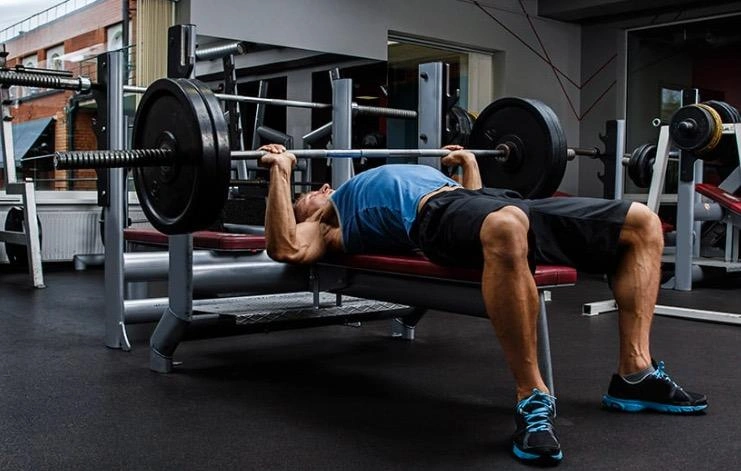Introduction
Welcome to the ultimate guide to finding the best creatine supplement for your fitness goals!
Creatine is a powerhouse supplement well-known for enhancing muscle growth, recovery, and strength. With numerous options on the market, selecting the right creatine can be challenging.
Fear not; this comprehensive guide promises to help you make an informed decision by introducing you to the best creatine supplements available, explaining how creatine works, and detailing its many benefits.
What is Creatine and How Does It Work?
Creatine is a naturally occurring compound found in small amounts in certain foods and synthesized by our bodies.

Primarily stored in the muscles, creatine is crucial in producing adenosine triphosphate (ATP), the energy currency for muscle contractions.
Types of Creatine
There are several types of creatine, with creatine monohydrate being the most researched and widely used. Other forms include creatine hydrochloride (HCL), creatine ethyl ester, buffered creatine, liquid creatine, and more.
Creatine monohydrate remains the top choice due to its extensive research, proven efficacy, and affordability.
Benefits of Creatine
Muscle Growth
Creatine is synonymous with muscle growth. By increasing the water content in muscle cells, creatine optimizes muscle protein synthesis, leading to muscle hypertrophy.
Numerous studies have shown significant muscle mass gains for those who use creatine supplementation.
These gains can be attributed to enhanced ATP production, which provides the energy required for intense workouts and sustained muscle contractions.
Muscle Recovery
After intense workouts, muscle recovery is crucial. Creatine aids in replenishing ATP stores faster, reducing muscle soreness and enhancing recovery.
This is particularly beneficial for athletes and fitness enthusiasts who want to maintain high performance levels in their training regimens.
Faster recovery means you can train more frequently and at higher intensities, leading to better overall results.
Muscle Strength
Strength athletes, such as powerlifters, swear by creatine. It helps increase muscle strength by allowing for more significant energy production during high-intensity exercise.

Creatine supplementation can result in notable improvements in lifting capacities and overall power output.
Studies have shown that creatine users can lift heavier weights and perform more repetitions, contributing to greater strength gains over time.
Choosing a Creatine Supplement
Micronized Creatine Monohydrate vs. Regular Creatine Monohydrate
Micronized creatine monohydrate has smaller particles, resulting in better solubility and absorption.
While both forms are effective, micronized creatine may be more comfortable on the stomach and mix seamlessly in liquids. Regular creatine monohydrate is slightly more affordable but may not dissolve as easily.
Best Creatine Supplements of 2024 – Top 5 List
After rigorous research and user feedback, we’ve narrowed down the top 5 best creatine supplements of 2024. Our criteria included effectiveness, user reviews, purity, mixability, and overall value.
1. Nutricost Creatine Monohydrate Micronized Powder
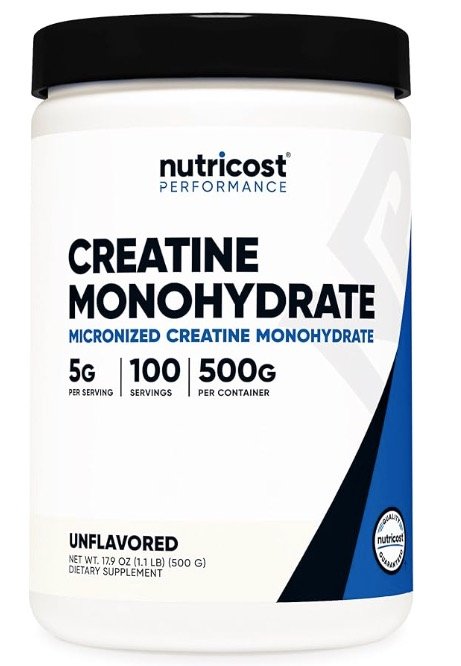
Features:
Nutricost Creatine Monohydrate Micronized Powder is a top contender for those seeking high-quality creatine in a micronized form.
This creatine powder is pure, unflavored, and contains no additives, making it an excellent choice for those looking to avoid unnecessary ingredients.
The micronized form ensures efficient absorption and reduces the likelihood of stomach discomfort, which can be an issue with regular creatine monohydrate.
User Reviews:
Users praise Nutricost for its smooth mixability and rapid results. Many have reported noticeable muscle strength and recovery improvements within just a few weeks of use.
It’s also appreciated for its affordability, offering high-quality creatine at a budget-friendly price. Some users have noted minor bloating, but this is a common side effect of many creatine supplements.
Pro’s/Cons:
- Pros: Nutricost Creatine Monohydrate offers high-quality micronized creatine, which ensures excellent solubility in liquids. Additionally, it provides great value for those seeking an affordable creatine option.
- Cons: Some users have reported experiencing minor bloating when using this product, which is a common side effect of many creatine supplements.
2. Optimum Nutrition Micronized Creatine Powder/Capsules

Features:
Optimum Nutrition is a well-respected brand in the fitness world, and its micronized creatine monohydrate powder and capsules live up to the hype.
The powder offers fine micronized creatine for better solubility and faster absorption, while the capsules provide exceptional convenience and precise dosing.
User Reviews:
- Users love the convenience of the capsule form, particularly those who dislike the taste or texture of creatine powder.
- The powder version mixes well in water and other liquids, making it easy to incorporate into your daily routine. Reviews highlight consistent gains in muscle mass, strength, and improved recovery times.
Pro’s/Cons:
- Pros: Optimum Nutrition is a trusted brand known for delivering high-quality supplements. Their creatine product is available in both powder and capsule form, providing flexibility based on user preference.
- Cons: While the capsules offer convenience, they may be less cost-effective compared to the powdered version, especially for long-term use.
3. Naked Pure Creatine Monohydrate Powder
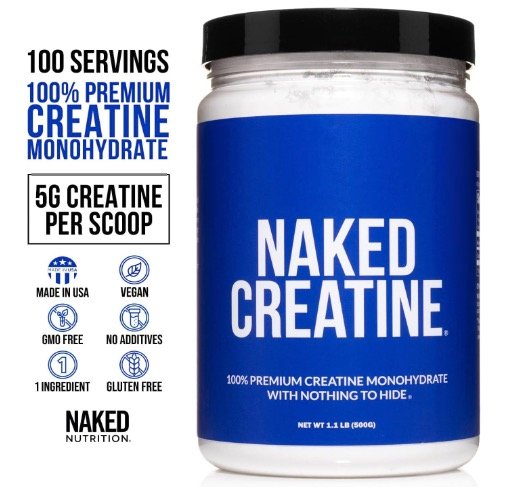
Features:
Naked Pure Creatine Monohydrate Powder delivers exactly what its name suggests: pure creatine monohydrate without any artificial flavors, colors, or fillers.
This supplement is perfect for individuals seeking clean and straightforward creatine supplementation.
User Reviews:
Users commend its purity and impressive results, noting significant improvements in workout performance and muscle gains.
The absence of additives means it’s suitable for those with dietary sensitivities or those avoiding specific ingredients. While the lack of flavor options is mentioned, many users mix it with their favorite shakes or juices.
Pro’s/Cons:
- Pros: Naked Pure Creatine Monohydrate is praised for its pure formulation without additives, making it an effective and affordable choice for those seeking a clean creatine product.
- Cons: The product offers limited flavor options, which may be a drawback for those who prefer flavored supplements to mix with their shakes or smoothies.
4. BulkSupplements Creatine Monohydrate Powder
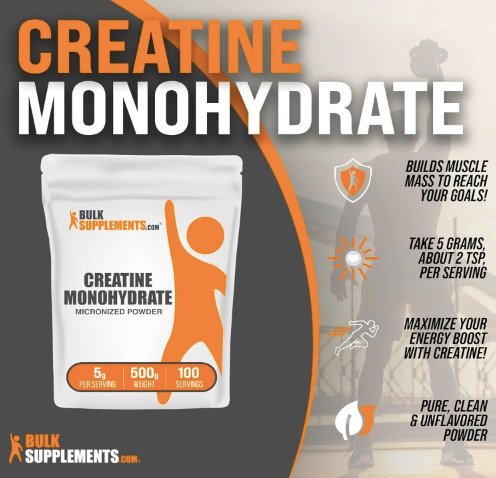
Features:
Bulk Supplements Creatine Monohydrate Powder is an ideal choice for those who prefer purchasing in bulk. It offers excellent value for money while maintaining high-quality purity and effectiveness.
This creatine is pure, unflavored, and free from any fillers or additives.
User Reviews:
Reviewers appreciate the cost-effectiveness and ability to purchase larger quantities, making it perfect for long-term supplementation.
Users report strong performance improvements and quick recovery times. The only downside is the large size, which may be cumbersome for some.
Pro’s/Cons:
- Pros: BulkSupplements Creatine Monohydrate Powder is ideal for individuals who prefer purchasing in bulk, as it provides high-quality, pure creatine at an excellent price point.
- Cons: For users who don’t need large quantities, the bulky packaging may be cumbersome and not as convenient as smaller, more portable options.
5. Bucked Up Creatine Monohydrate Powder
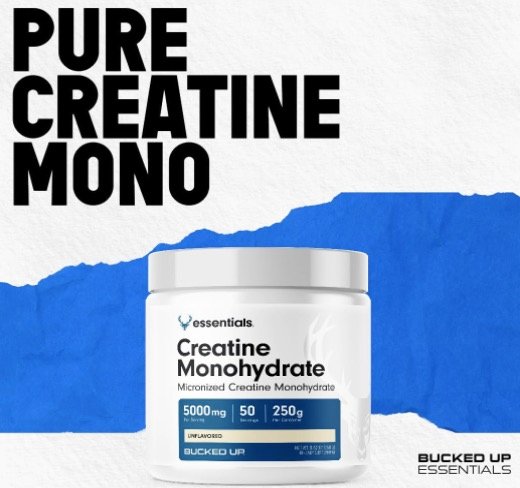
Features:
Bucked Up Creatine Monohydrate promises high-quality creatine that meets consumer standards for efficacy and purity. The product is designed to support muscle growth, strength, and recovery without breaking the bank.
User Reviews:
Consumers are pleased with performance enhancement and noticeable results within a short period.
Bucked Up Creatine Monohydrate is praised for its mixability and lack of aftertaste. However, some users mentioned difficulty in finding it in their region.
Pros/Cons:
- Pros: Bucked Up Creatine Monohydrate is highly effective and receives positive feedback from users, who report noticeable results within a short period of time. It also offers competitive pricing, making it an appealing choice for those seeking value.
- Cons: Some users have noted that the product can be difficult to find in certain regions, which may limit availability for potential customers.
How to Use Creatine for Optimal Results
Loading vs. No Loading Phase
Loading involves taking 20 grams of creatine daily for 5-7 days, then transitioning to a maintenance dose of 5 grams. Although the loading phase can rapidly saturate muscles with creatine, it isn’t mandatory.
A consistent daily dose of 5 grams of creatine monohydrate can also achieve similar results over a slightly longer period. Both strategies are effective, so choose the one that best fits your routine.
Daily Dosage Recommendations
A standard maintenance dose is 3-5 grams per day. Adjustments may be necessary based on your activity level and specific goals. Always consult the product label for specific dosing instructions.
Some experts recommend taking smaller doses spread throughout the day to avoid gastrointestinal distress.
Best Time to Take Creatine
Timing can impact the effectiveness of creatine. Many fitness experts recommend taking creatine post-workout to maximize its benefits due to increased blood flow to muscles.
However, some prefer pre-workout or even in their morning smoothie. Consistency is key, so find a routine that works best for you and stick to it.
Integrating Creatine with Other Supplements

Combining Creatine with Protein Powders
Stacking creatine with a good protein powder can amplify muscle growth and recovery (read more about protein powders).
Creatine aids in energy production, while protein supports muscle repair and hypertrophy, making them a powerful duo. Opt for a high-quality protein powder, such as whey protein, to mix with your creatine supplement.
This combination ensures that your muscles have the necessary building blocks for repair and growth right after an intense workout.
Tips for Combining Creatine and Protein:
- Post-Workout Shake: Mix 5 grams of creatine monohydrate with a scoop of your favorite protein powder and water or milk. This post-workout shake can quickly replenish your muscles.
- Morning Boost: Start your day with a protein shake that includes creatine to kick-start muscle recovery and prepare you for your workouts.
- Consistency: Ensure you consistently consume both supplements to maximize their benefits.
Creatine and BCAAs
Branched-chain amino acids (BCAAs) complement creatine by further promoting muscle recovery, reducing workout fatigue, and preventing muscle breakdown. Taking BCAAs along with creatine can enhance muscle protein synthesis and provide sustained energy during workouts.
Tips for Combining Creatine and BCAAs:
- Intra-Workout Drink: Create an intra-workout drink by mixing BCAAs and creatine with water to sip during your workout. This can help maintain energy levels and support muscle endurance.
- Pre-Workout Combination: Take BCAAs and creatine 30 minutes before your workout to prime your muscles for optimal performance.
- Hydration: Drink plenty of water throughout the day to aid creatine and BCAA absorption and ensure proper hydration.
Creatine and Caffeine
Despite some myths, creatine and caffeine can be taken together. Caffeine boosts focus and energy levels, while creatine enhances strength and recovery. Together, they can power up your workout routine and improve overall performance.
Tips for Combining Creatine and Caffeine:
1. Pre-Workout Energy Boost: Mix creatine into your morning coffee or pre-workout drink to combine the energy-boosting effects of caffeine with the strength-enhancing benefits of creatine.
2. Timing: Consume caffeine and creatine at least 30 minutes before your workout for optimal results.
3. Moderation: Use caffeine in moderate amounts to avoid jitteriness and ensure it complements, rather than hinders, your workout.
For more on how to stack supplements for maximum performance, check out our guide to the best workout supplements.
Best Creatine for Specific Goals
When choosing the right creatine supplement, it’s important to consider your individual fitness goals. Different types of creatine may be better suited to specific objectives, such as building muscle mass, increasing endurance, or supporting a lean physique. Below are tailored recommendations to help you choose the best creatine based on your fitness ambitions.
Best Creatine for Muscle Mass
When it comes to building muscle mass, creatine monohydrate remains the most effective and researched form. This type of creatine increases water retention in muscle cells, which not only enhances muscle protein synthesis but also supports overall muscle growth during resistance training.
Top Pick: Optimum Nutrition Micronized Creatine Monohydrate
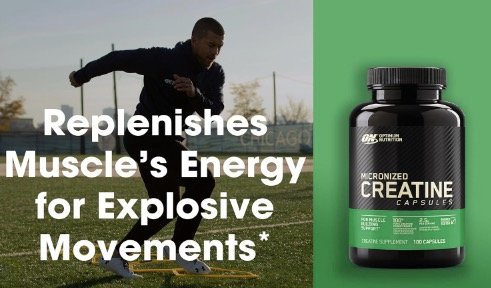
Why: This product offers micronized creatine monohydrate, which dissolves easily in liquids and is absorbed quickly by the body, making it ideal for boosting muscle size and strength.
Best Creatine for Endurance Athletes
For endurance athletes, it’s crucial to choose a creatine that enhances stamina and aids in recovery.
Creatine monohydrate and creatine hydrochloride (HCL) are both solid choices for those focused on long-term endurance, as they improve ATP production without excessive water retention, which is key for avoiding the “bulky” feeling during cardio or long-distance activities.
Top Pick: Kaged Muscle C-HCL Creatine Hydrochloride
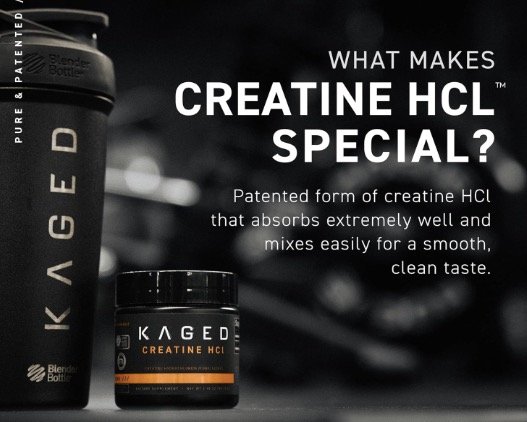
Why: Creatine HCL absorbs faster and reduces the chance of bloating, making it a preferred choice for athletes looking for sustained performance without added weight.
Best Creatine for Vegetarians or Vegans
Vegetarians and vegans may have lower natural creatine stores since dietary creatine is found in animal products.
Creatine monohydrate is a great option for them, as it’s free of animal products and can effectively replenish creatine levels for optimal energy and performance.
Top Pick: Naked Nutrition Creatine Monohydrate
Why: This product is 100% pure, vegan-friendly creatine with no fillers or artificial ingredients, making it a clean choice for plant-based athletes.
Best Creatine for Getting Lean
If your goal is to get lean and retain muscle while minimizing fat, creatine monohydrate remains a solid choice, but creatine ethyl ester is also worth considering.
Ethyl ester is absorbed more efficiently, which may help reduce water retention, allowing for a leaner appearance while still supporting strength gains.
Top Pick: Bulk Supplements Creatine Ethyl Ester
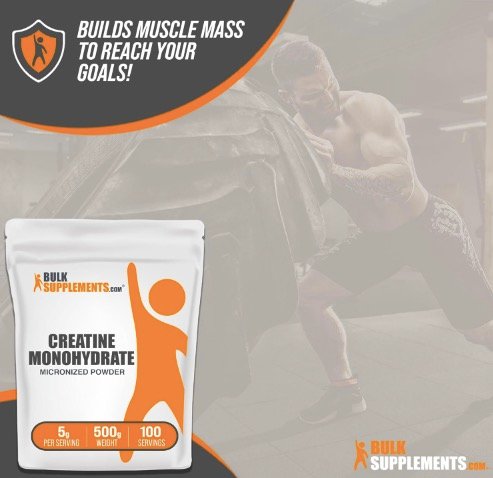
Why: This creatine is praised for its ability to help users gain strength without excessive water retention, which can help maintain a lean, defined physique.
By choosing the right creatine based on your fitness goals, you can optimize your performance and see better results, whether you’re aiming to bulk up, improve endurance, or get lean.
Conclusion
Choosing the best creatine supplement can significantly impact your muscle growth, recovery, and strength. Whether you opt for micronized creatine monohydrate or another high-quality creatine product, the key is to find what works best for your body and fitness goals.
Experiment and adjust your routine as needed, and remember to consult with a healthcare provider before starting any new supplement regimen.
By integrating creatine with other supplements, such as protein powders, BCAAs, and caffeine, you can amplify the benefits and achieve your fitness aspirations more effectively.
Tell us about your experience with different creatine supplements in the comments below! Have any tips or insights? Share them with our community.
Also, be sure to subscribe for more fitness and supplement tips. Unleash your potential and achieve your goals with the right creatine supplement.
FAQ Creatine Usage and Tips
What is the Best Time to Take Creatine?
Many fitness experts recommend taking creatine post-workout to maximize its benefits due to increased blood flow to muscles.
However, some prefer pre-workout or in their morning smoothie. Consistency is key, so find a routine that works best for you and stick to it.
Is Creatine Safe for Long-Term Use?
Yes, multiple studies support the safety of long-term creatine use for healthy individuals. It has been extensively researched, with findings indicating that it is safe when taken at recommended doses.
However, always consult with a healthcare professional to tailor it to your specific needs.
What are the differences between the Creatine Types?
Creatine monohydrate is the most researched and effective form. Other types, such as creatine hydrochloride (HCL) and creatine ethyl ester, may offer different absorption rates but typically do not surpass the efficacy of creatine monohydrate.
Can Women Take Creatine?
Absolutely! Creatine is beneficial for both men and women. It supports muscle tone, strength, and recovery and can help female athletes improve their performance without the bulk.
What is loading should I load with Creatine?
Loading involves taking 20 grams of creatine daily for 5-7 days, then transitioning to a maintenance dose of 5 grams. While loading can rapidly saturate muscles with creatine, it isn’t mandatory.
A consistent daily dose of 5 grams of creatine monohydrate can also achieve similar results over a longer period.
How Much Water Should I Drink with Creatine?
It’s essential to stay well-hydrated when taking creatine. Aim to drink at least 8-10 cups of water a day to aid absorption and prevent dehydration.
Does Creatine Cause Bloating?
Some users report minor bloating when first starting creatine supplementation. This is usually temporary as the body adjusts. Opting for micronized creatine monohydrate can help reduce bloating.


